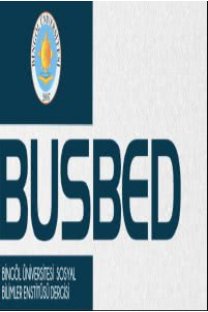EFLATUN’UN DEVLET DİYALOĞU’NUN TARTIŞMA USÛLÜ AÇISINDAN İNCELENMESİ
Eflatun Devlet diyaloğunda, tartışmalarda savunduğu fikri kabul ettirmek yahut karşı tarafın fikrini reddetmek için değişik usuller ve taktikler uygulamıştır. Bunlardan, sıkça sorular sorarak tartışmayı açması ve sürdürmesi, zengin kavram ve cümle tahlilleri yapması en başta zikredilecek hususlardandır. Adalet, iyilik, dostluk, erdem, ödev gibi kavramlar ve bunlarla ilgili sorgulamalar kitabın esasını oluşturmaktadır. Eflatun, tartışmalarında çok etkili taktikler kullanmaktadır. Soru sorma, alternatifleri sıralama ve eleme, delil isteme, ihtimalleri düşündürme, karşılaştırma yapma bu etkili taktiklerden birkaçıdır. Kitapta, mantık, bilim olarak kurulup sistemleşmiş olmamasına rağmen, akıl yürütmelerde bulunulmakta, birçok kavramın tanımı ve sınıflandırılması yapılmakta; hulf, ikilem ve kısaltılmış kıyas türünden deliller getirilmekte, ayrıca yer yer düşülen çelişkilere dikkat çekilmektedir. Söz konusu yapıtta yer yer kategori, ilinti, mutlak-mukayyed, ignoratio elenchii, yanlış ikilem, popüler olana başvurma ve konudışılık gibi bazı mantık yanlışlarına da, ad belirtilmese de, muhteva olarak yer verilmektedir.
THE EXAMINATION OF PLATO’S REPUBLIC IN TERMS OF DISCUSSION METHOD
Plato, in Republic, performs different methods and tactics in order to put across the ideas he argued or to reject the claims of others. To open and pursue the discussion by asking consecutive questions and to make productive concept and sentence analysis are among the methods and tactics that can be primarily stated. The book mainly based on the concepts such as justice, favor, friendship, virtue, duty and the queries upon the concepts. Plato uses very effective tactics in his discussions. Questioning, proposing and eliminating the alternatives, asking proof, making people think of the possibilities and comparing are some of these effective tactics. Although logic is not established and systematic as science, reasoning is made and many concepts are defined and classified. Proofs such as sulf, dilemma and shortened comparative type are introduced. In addition, attention is drawn to the contradictions that are sometimes dropped. Logical fallacies such as category, accident, secundum quid, ignoratio elenchii, false dilemma, argumentum ad populum, irrelevance take place as content in the study even if the fallacies conceptually are not stated.
___
DUMAN, M. Akif (2015), Platon’un Retorik Anlayışı, İstanbul, Litera Yayıncılık.EMİROĞLU, İbrahim; ALTUNYA, Hülya (2018), Örnekleriyle Mantık Sözlüğü, İstanbul, Litera Yayıncılık.
PLATON (EFLATUN) (2005), Devlet, Çev. Sabahattin Eyuboğlu; M. Ali Cimcoz, İstanbul, Türkiye İş bankası Kültür Yayınları (Dokuzuncu basım).
- ISSN: 1309-6672
- Yayın Aralığı: Yılda 2 Sayı
- Başlangıç: 2011
- Yayıncı: Yusuf Aydoğdu
Sayıdaki Diğer Makaleler
KLASİK DÖNEM SONRASI OSMANLIDA BİLİM
BÎRÛNÎ’NİN KULLANDIĞI BAZI İLGİ ÇEKİCİ KAVRAMLAR
NECATİ ÖNER'İN DİL HASSASİYETİ
FUAT SEZGİN’İN ENDÜLÜS ARAP ŞİİRİYLE İLGİLİ MÜLAHAZALARI
İSLAM DÜNYASINDA GERİ KALMIŞLIK SORUNU VE FUAT SEZGİN’İN KONUYA İLİŞKİN GÖRÜŞLERİ
FUAT SEZGİN’İN TARİH YAZICILIĞINDA RASATHANELER: ÖRNEĞİ RASATHANELER: MERAGA RASATHANESİ ÖRNEĞİ
